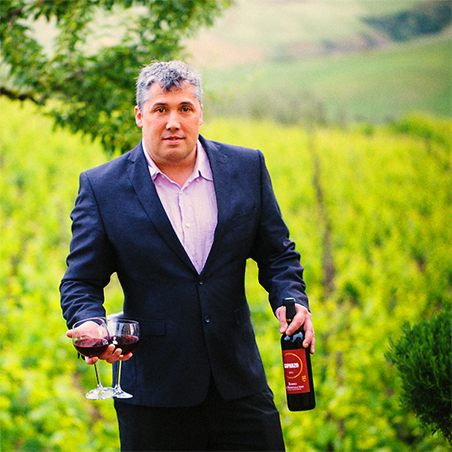Mark DeWolf
Sommelier, Creative Director, Food & Drink, The Saltwire Network
Bachelor of Science (Hons.), Economics, 1994
It is not just hard science… there is a certain romantic quality about it.
Sommelier Mark DeWolf considers himself a student of both the art and science of wine. “I find learning about the history and culture surrounding wine as compelling as the impact of climate, soil and technology, to be honest,” he explains.
Mark graduated from King’s with a new way of looking at things. “I don’t use my Nietzsche or Plato on a daily basis,” he laughs, “but it gave me the skills I took on to my own career.”
So when his first job in Toronto with a corporate identity firm turned out to be “unfulfilling”, he took a different approach. Mark started to volunteer at one of the early craft breweries in that city. “I was actually a beer geek way before it was cool to like craft beer,” he says.
That got him hooked on the alcohol beverage industry, and when he returned to Halifax he started working in a restaurant.
“I decided if I was going to work in a restaurant I might as well be the best, so I took the certified sommelier program. It was a very small class. Maybe nine of us here and about 175 across the country. I came out second overall in Canada (first in theory and tasting) so it gave me the opportunity to do some cool work after that.”
Indeed. Mark describes himself as an entrepreneur. He turned his sommelier training into wine related businesses. He originally conducted wine tours in Nova Scotia and then launched wine tours to Europe and other destinations. He held wine dinners and professional wine courses and he pitched the idea of a consumer magazine to the Nova Scotia Liquor Corporation (NSLC). He didn’t get the contract, but he was hired as the editor of Occasions as the magazine became. Mark continues his work as Creative Director – Food and Drink with the Saltwire Network.
Mark enjoys being able to share a love of food and wine with his readers. “I think that there is a natural joy in food and drink. Knowing that people rely on me for some part of it – that you have an impact on someone’s life – is rewarding.”
Mark is nearing the end of his four-year term as the president of the Canadian Professional Sommeliers Association. He’s the first Atlantic Canadian to hold the position, a testament he says to the strength of the local organization. During his time as president, Mark has been able to act as a mentor to young sommeliers, as well as bring about change in the wine-tasting world. Not one to rest on past laurels, Mark is now running to be Vice-President of the Americas with the Association de la Sommellerie Internationale (ASI), a global sommelier association with more than 60 member countries.
“I need to make sure that each sommelier – whether they’re living in Wolfville or Toronto, Mexico City or Buenos Aires – that they’re treated the same.”
He has worked with the Femmes du Vin program, which aims to support women working in this wine industry. Further, he is the Director of Sponsorship of the Tasting Climate Change conference, which discusses sustainable practices in the industry.
It all fits with Mark’s view of the role of the sommelier today. It is about educating the public about the business and the mysteries of wine.
“It is not just hard science,” he says. “That’s what I tell my students. Who would want to taste and talk about wine in a purely scientific way? It’s also how it makes us feel. It is rooted in culture and history. There is a certain romantic quality about it. I am sure a lot of children have been born as a result of it!”
Although Mark spends time writing, creating recipes and working on art direction, he likes that his position’s creativity is balanced by practicality. “I love spreadsheets,” he laughs. “At the end of the day, the wine business is a business, so you need people to look at the numbers and grow them. I have the benefit of having both sides of my brain working.”
But while his job is teaching people about food and wine, as well as writing about it and tasting it, it is also his love. Over the years, he has tasted several wines, including one from 1728. “While I have had the pleasures of some pretty prestigious wines, I’ll admit that there are a whole number of factors that add up to my enjoyment of wine, not least of which is the food being served or the company I’m with. The beauty of a great wine is that it is a cumulative of taste and experience,” he says. As for a favourite wine, he finds it hard to identify just one.
“I love all my children,” he says. Then he laughs and adds, “and my kids too!”
Updated: Aug. 2020
 Connect with Mark DeWolf
Connect with Mark DeWolf